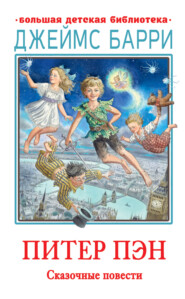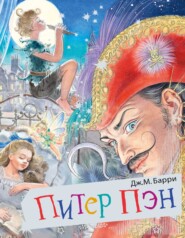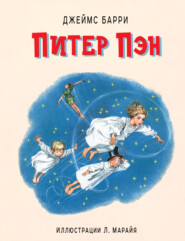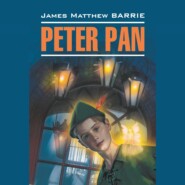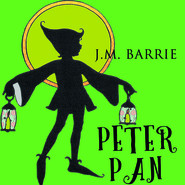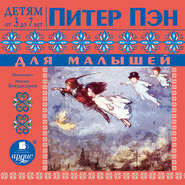По всем вопросам обращайтесь на: info@litportal.ru
(©) 2003-2025.
✖
When a Man's Single: A Tale of Literary Life
Автор
Год написания книги
2017
Настройки чтения
Размер шрифта
Высота строк
Поля
'Oh no,' said Mary, 'I have nothing to do with your going or staying.'
'But it – it would hardly do for me to remain after what took place last night,' said the baronet, in the tone of one who was open to contradiction.
For the first time in the conversation Mary smiled. It was not, however, the smile every man would care to see at his own expense.
'If you were to go now,' she said, 'you would not be fulfilling your promise to papa, and I know that men do not like to break their word to – to other men.'
'Then you think I ought to stay?' asked Sir Clement eagerly.
'It is for you to think,' said Mary.
'Perhaps, then, I ought to remain – for Colonel Abinger's sake,' said the baronet.
Mary did not answer.
'Only for a few days,' he continued almost appealingly.
'Very well,' said Mary.
'And you won't think the worse of me for it?' asked Dowton anxiously. 'Of course, if I were to consult my own wishes I would go now, but as I promised Colonel Abinger – '
'You will remain out of consideration for papa. How could I think worse of you for that?'
Mary rose to leave the room, and as Sir Clement opened the door for her he said —
'We shall say nothing of all this to Colonel Abinger?'
'Oh no, certainly not,' said Mary.
She glanced up in his face, her mouth twisted slightly to one side, as it had a habit of doing when she felt disdainful, and the glory of her beauty filled him of a sudden. The baronet pushed the door close and turned to her passionately, a film over his eyes and his hands outstretched.
'Mary,' he cried, 'is there no hope for me?'
'No,' said Mary, opening the door for herself, and passing out.
Sir Clement stood there motionless for a minute. Then he crossed to the fireplace, and sank into a luxuriously cushioned chair. The sunlight came back to his noble face.
'This is grand, glorious,' he murmured, in an ecstasy of enjoyment.
In the days that followed, the baronet's behaviour was a little peculiar. Occasionally at meals he seemed to remember that a rejected lover ought not to have a good appetite. If, when he was smoking in the grounds, he saw Mary approaching, he covertly dropped his cigar. When he knew that she was sitting at a window he would pace up and down the walk with his head bent as if life had lost its interest to him. By and by his mind wandered, on these occasions, to more cheerful matters, and he would start to find that he had been smiling to himself and swishing his cane playfully, like a man who walked on air. It might have been said of him that he tried to be miserable and found it hard work.
Will, who discovered that the baronet did not know what l.b.w. meant, could not, nevertheless, despise a man who had shot lions, but he never had quite the same respect for the king of beasts again. As for Greybrooke, he rather liked Sir Clement, because he knew that Nell (in her own words) 'loathed, hated, and despised' him.
Greybrooke had two severe disappointments that holiday, both of which were to be traced to the capricious Nell. It had dawned on him that she could not help liking him a little if she saw him take a famous jump over the Dome, known to legend as the 'Robber's Leap.' The robber had lost his life in trying to leap the stream, but the captain practised in the castle grounds until he felt that he could clear it. Then he formally invited Miss Meredith to come and see him do it, and she told him instead that he was wicked. The captain and Will went back silently to the castle, wondering what on earth she would like.
Greybrooke's other disappointment was still more grievous. One evening he and Will returned to the castle late for dinner, an offence the colonel found it hard to overlook, although they were going back to school on the following day. Will reached the dining-room first, and his father frowned on him.
'You are a quarter of an hour late, William,' said the colonel sternly. 'Where have you been?'
Will hesitated.
'Do you remember,' he said at last, 'a man called Angus, who was here reporting on Christmas Eve?'
Mary laid down her knife and fork.
'A painfully powerful-looking man,' said Dowton, 'in hob-nailed boots. I remember him.'
'Well, we have been calling on him,' said Will.
'Calling on him, calling on that impudent newspaper man!' exclaimed the colonel; 'what do you mean?'
'Greybrooke had a row with him some time ago,' said Will; 'I don't know what about, because it was private; but the captain has been looking for the fellow for a fortnight to lick him – I mean punish him. We came upon him two days ago, near the castle gates.'
Here Will paused, as if he would prefer to jump what followed.
'And did your friend "lick" him then?' asked the colonel, at which Will shook his head.
'Why not?' asked Sir Clement.
'Well,' said Will reluctantly, 'the fellow wouldn't let him. He – he lifted Greybrooke up in his arms, and – and dropped him over the hedge.'
Mary could not help laughing.
'The beggar – I mean the fellow – must have muscles like ivy roots,' Will blurted out admiringly.
'I fancy,' said Dowton, 'that I have seen him near the gates several times during the last week.'
'Very likely,' said the colonel shortly. 'I caught him poaching in the Dome some months ago. There is something bad about that man.'
'Papa!' said Mary.
At this moment Greybrooke entered.
'So, Mr. Greybrooke,' said the colonel, 'I hear you have been in Silchester avenging an insult.'
The captain looked at Will, who nodded.
'I went there,' admitted Greybrooke, blushing, 'to horsewhip a reporter fellow, but he had run away.'
'Run away?'
'Yes. Did not Will tell you? We called at the Mirror office, and were told that Angus had bolted to London two days ago.'
'And the worst of it,' interposed Will, 'is that he ran off without paying his landlady's bill.'
'I knew that man was a rascal,' exclaimed the colonel.
Mary flushed.









